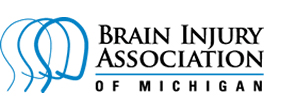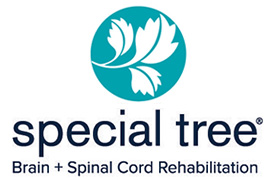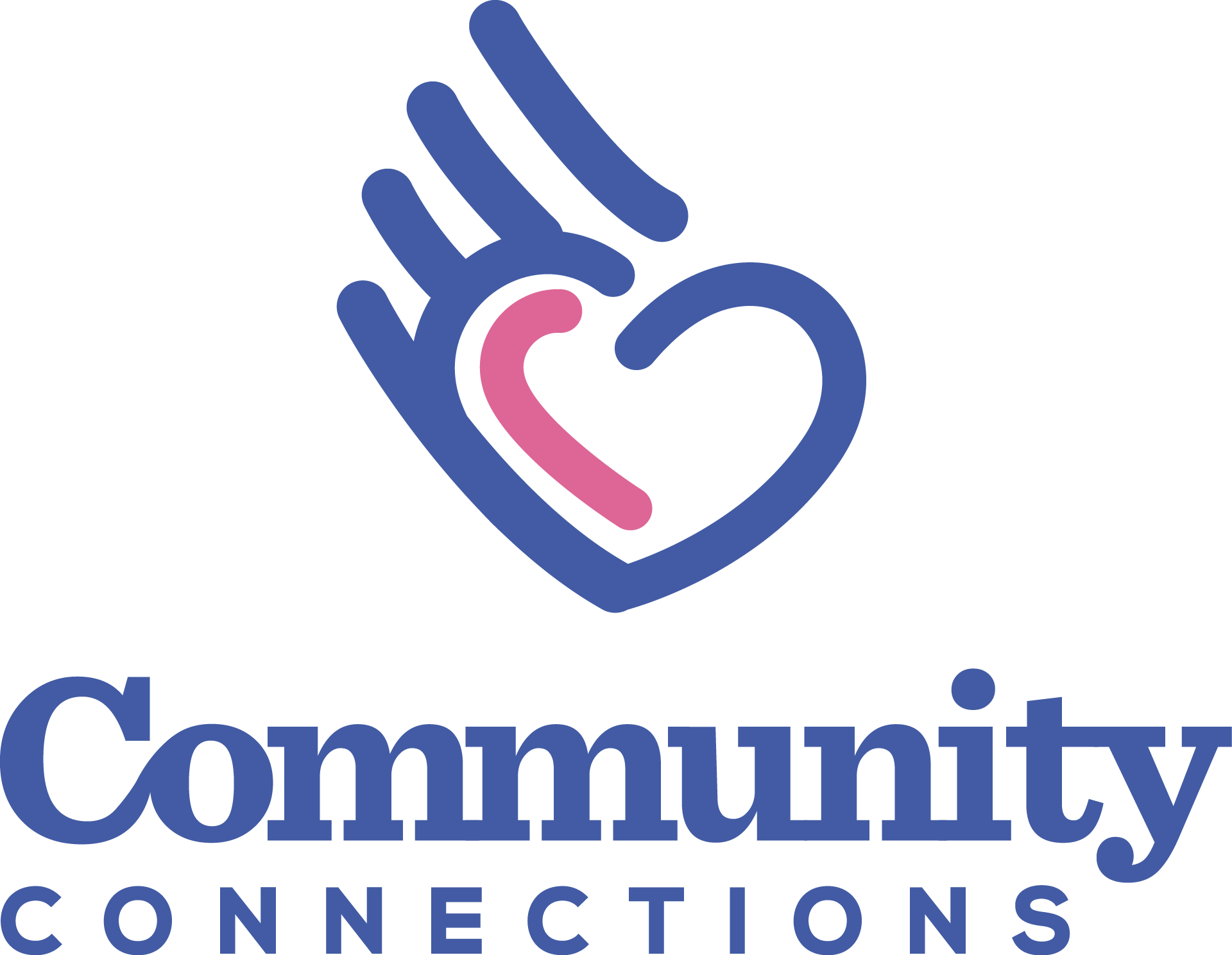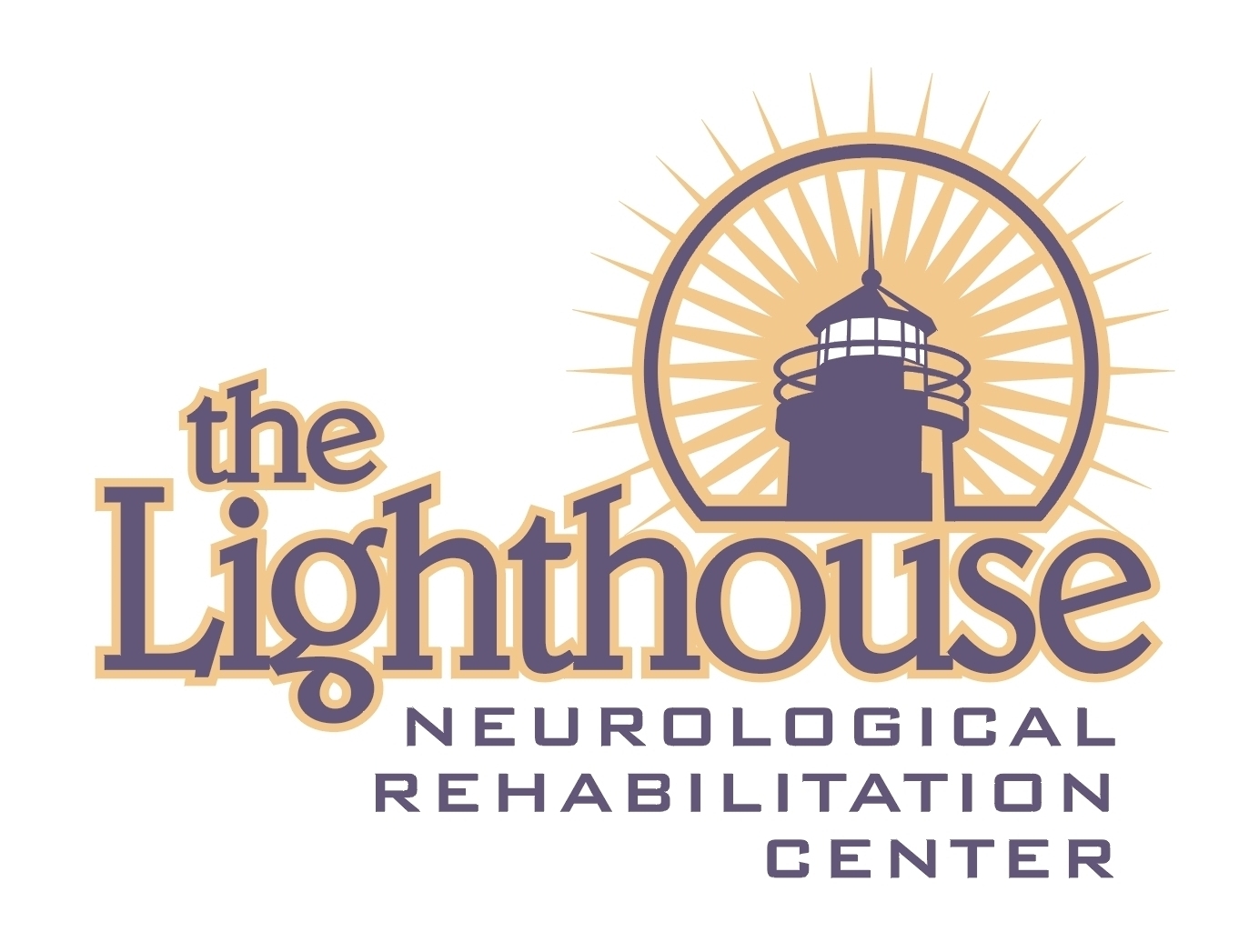How does TBI happen?
The Mechanisms of Traumatic Brain Injury
Traumatic brain injuries may be either penetrating or closed head.
How does TBI happen?
The Mechanisms of Traumatic Brain Injury
Traumatic brain injuries may be either penetrating or closed head.
Less severe instances of TBI – diagnosed as moderate TBI – also may have serious consequences, including:
- Loss of consciousness
- Physical and mental function deficits
- Altered personality
- Altered memory or memory loss (amnesia)
- Verbal or physical aggressiveness
- Agitation
- Cognitive and learning difficulties
- Reduced self-awareness
- Sexual difficulties
- Impulsiveness/inappropriate behaviors
Less severe instances of TBI – diagnosed as moderate TBI – also may have serious consequences, including:
- Loss of consciousness
- Physical and mental function deficits
- Altered personality
- Altered memory or memory loss (amnesia)
- Verbal or physical aggressiveness
- Agitation
- Cognitive and learning difficulties
- Reduced self-awareness
- Sexual difficulties
- Impulsiveness/inappropriate behaviors
What, Who and How of TBI
A Traumatic Brain Injury (TBI) is a disruption in the normal function of the brain that can be caused by a bump, blow, or jolt to the head, rotational force, sudden acceleration and deceleration, shock from an explosive blast, or a penetrating head injury. A TBI can be so mild as to be virtually unnoticeable or so severe that it causes death.
Concussion, a subset of TBI, is the common term applied to any significant but mild bump, blow, or jolt to the head resulting in clinical symptoms (technically, a temporary loss of brain function). Those symptoms may include loss of consciousness, “seeing stars,” headache, confusion, nausea, memory gaps, cognitive impairment such as slowness in problem solving, and others. Concussion symptoms may appear immediately or evolve over hours or days, but impairment is usually limited and resolves spontaneously. Symptoms, however, may also be prolonged, in which case neurological consultation is required.
While concussion is the term popularly used to describe a mild brain injury (mTBI), occasionally experienced during athletic and recreational activity, there are numerous other causes of traumatic brain injury. Perhaps surprisingly, most TBI sufferers are actually children from birth to age 4, the elderly, and teens, with falls largely accounting for concussion in children and elderly, and auto and vehicle accidents responsible for most teen and young adult incidents. Regardless of age, males are twice as likely to incur a traumatic brain injury as females, and boys from birth to age 4 have the highest rates of TBI-related emergency department visits, hospitalizations, and deaths combined.
Common causes of TBI include:
- Falls
- Athletic and recreational activity
- Assaults, including domestic abuse and shaken baby syndrome
- Motor vehicle and bicycle accidents
- Military blast injuries
What, Who and How of TBI
A Traumatic Brain Injury (TBI) is a disruption in the normal function of the brain that can be caused by a bump, blow, or jolt to the head, rotational force, sudden acceleration and deceleration, shock from an explosive blast, or a penetrating head injury. A TBI can be so mild as to be virtually unnoticeable or so severe that it causes death.
Concussion, a subset of TBI, is the common term applied to any significant but mild bump, blow, or jolt to the head resulting in clinical symptoms (technically, a temporary loss of brain function). Those symptoms may include loss of consciousness, “seeing stars,” headache, confusion, nausea, memory gaps, cognitive impairment such as slowness in problem solving, and others. Concussion symptoms may appear immediately or evolve over hours or days, but impairment is usually limited and resolves spontaneously. Symptoms, however, may also be prolonged, in which case neurological consultation is required.
While concussion is the term popularly used to describe a mild brain injury (mTBI), occasionally experienced during athletic and recreational activity, there are numerous other causes of traumatic brain injury. Perhaps surprisingly, most TBI sufferers are actually children from birth to age 4, the elderly, and teens, with falls largely accounting for concussion in children and elderly, and auto and vehicle accidents responsible for most teen and young adult incidents. Regardless of age, males are twice as likely to incur a traumatic brain injury as females, and boys from birth to age 4 have the highest rates of TBI-related emergency department visits, hospitalizations, and deaths combined.
Common causes of TBI include:
- Falls
- Athletic and recreational activity
- Assaults, including domestic abuse and shaken baby syndrome
- Motor vehicle and bicycle accidents
- Military blast injuries
Did you know…
Did you know…
Severity of TBI
Symptoms: Overview
A variety of physical, cognitive, and emotional symptoms may accompany concussion and TBI, ranging from subtle and barely noticeable to extended loss of consciousness and coma. Symptoms of even mild concussion may include headache, dizziness, feeling in a fog, nausea or vomiting, and emotional instability, among numerous others. In medical terms, manifestations can be categorized as physical signs (such as loss of consciousness or amnesia), behavioral changes (such as irritability), cognitive impairment (such as slowed reaction times), and sleep disturbances. Loss of consciousness, no matter how briefly experienced, requires immediate medical examination and clearance from a medical specialist before returning to normal activity. While fewer than 10% of sports-related concussions among children and youth are associated with loss of consciousness, coaches, trainers, parents, and the athletes themselves should insist on immediately ceasing activity until consultation with a neurologist, as incomplete recovery from a concussion predisposes the athlete to further concussion and the risk of more significant brain damage.
Common symptoms after a concussive traumatic brain injury are headache, loss of memory (amnesia) and confusion. The amnesia usually involves forgetting the event that caused the concussion (information cited from the Mayo Clinic’s page on TBI).
Signs and symptoms of a concussion may include:
- Headache or a feeling of pressure in the head
- Temporary loss of consciousness
- Confusion or feeling as if in a fog
- Amnesia surrounding the traumatic event
- Dizziness or "seeing stars"
- Ringing in the ears
- Nausea
- Vomiting
- Slurred speech
- Delayed response to questions
- Appearing dazed
- Fatigue
- Hypersensitivity to light or sound
Symptoms: Overview
A variety of physical, cognitive, and emotional symptoms may accompany concussion and TBI, ranging from subtle and barely noticeable to extended loss of consciousness and coma. Symptoms of even mild concussion may include headache, dizziness, feeling in a fog, nausea or vomiting, and emotional instability, among numerous others. In medical terms, manifestations can be categorized as physical signs (such as loss of consciousness or amnesia), behavioral changes (such as irritability), cognitive impairment (such as slowed reaction times), and sleep disturbances. Loss of consciousness, no matter how briefly experienced, requires immediate medical examination and clearance from a medical specialist before returning to normal activity. While fewer than 10% of sports-related concussions among children and youth are associated with loss of consciousness, coaches, trainers, parents, and the athletes themselves should insist on immediately ceasing activity until consultation with a neurologist, as incomplete recovery from a concussion predisposes the athlete to further concussion and the risk of more significant brain damage.
Common symptoms after a concussive traumatic brain injury are headache, loss of memory (amnesia) and confusion. The amnesia usually involves forgetting the event that caused the concussion (information cited from the Mayo Clinic’s page on TBI).
Signs and symptoms of a concussion may include:
- Headache or a feeling of pressure in the head
- Temporary loss of consciousness
- Confusion or feeling as if in a fog
- Amnesia surrounding the traumatic event
- Dizziness or "seeing stars"
- Ringing in the ears
- Nausea
- Vomiting
- Slurred speech
- Delayed response to questions
- Appearing dazed
- Fatigue
- Hypersensitivity to light or sound
Symptoms in Children
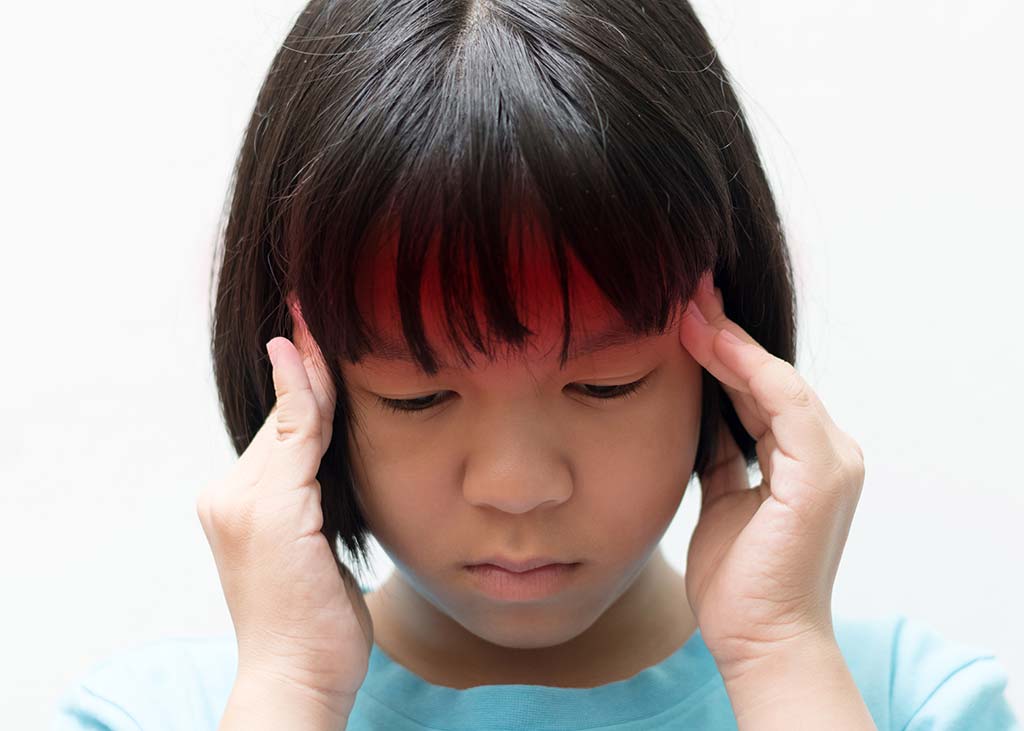
Head trauma is very common in young children, but concussions can be difficult to recognize because infants and toddlers can't describe how they feel. Concussion clues may include:
- Appearing dazed
- Listlessness and tiring easily
- Irritability and crankiness
- Loss of balance and unsteady walking
- Crying excessively
- Change in eating or sleeping patterns
- Lack of interest in favorite toys
TBI in general, and concussion in particular, is often difficult to diagnose by a family member, friend, or teammate, both because there may be no visible sign of damage or distress (see Closed Head Injury) and also because symptoms may not appear immediately but only become noticeable after hours, days, or weeks. Should those symptoms occur after a significant time, the sufferer may not even associate them with the injury itself – especially as those symptoms are not exclusively associated with concussion:
- Concentration and memory complaints
- Irritability and other personality changes
- Sensitivity to light and noise
- Sleep disturbances
- Psychological adjustment problems and depression
- Disorders of taste and smell
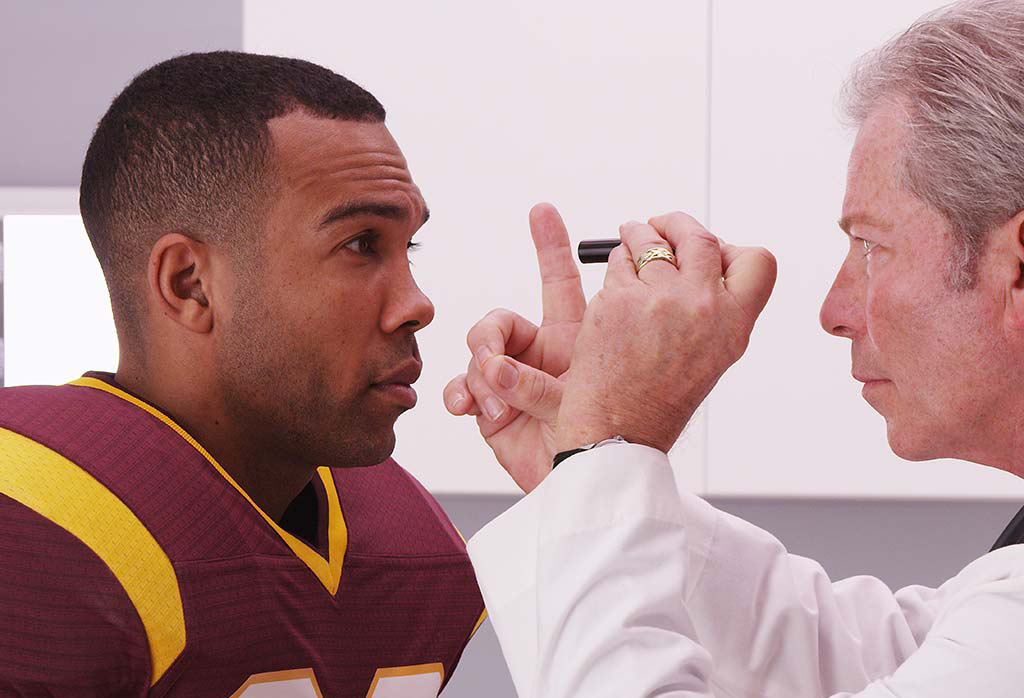
Does a concussion mean the end of playing sports?
Due to concerns about the long-term effects of concussion, it has not been unusual for medical specialists to recommend that concussed athletes should stop competing. Recent research and clinical experience, however, suggests that with proper rest, recovery, and specific rehabilitation protocols following a concussion, individuals may be able to resume their sport or activity. All cases are different, however, so athletes who have experienced concussion, regardless of age or skill level, should consult with a sports neurologist prior to making any decisions about returning to play.
Symptoms in Children

Head trauma is very common in young children, but concussions can be difficult to recognize because infants and toddlers can't describe how they feel. Concussion clues may include:
- Appearing dazed
- Listlessness and tiring easily
- Irritability and crankiness
- Loss of balance and unsteady walking
- Crying excessively
- Change in eating or sleeping patterns
- Lack of interest in favorite toys
TBI in general, and concussion in particular, is often difficult to diagnose by a family member, friend, or teammate, both because there may be no visible sign of damage or distress (see Closed Head Injury) and also because symptoms may not appear immediately but only become noticeable after hours, days, or weeks. Should those symptoms occur after a significant time, the sufferer may not even associate them with the injury itself – especially as those symptoms are not exclusively associated with concussion:
- Concentration and memory complaints
- Irritability and other personality changes
- Sensitivity to light and noise
- Sleep disturbances
- Psychological adjustment problems and depression
- Disorders of taste and smell

Does a concussion mean the end of playing sports?
Due to concerns about the long-term effects of concussion, it has not been unusual for medical specialists to recommend that concussed athletes should stop competing. Recent research and clinical experience, however, suggests that with proper rest, recovery, and specific rehabilitation protocols following a concussion, individuals may be able to resume their sport or activity. All cases are different, however, so athletes who have experienced concussion, regardless of age or skill level, should consult with a sports neurologist prior to making any decisions about returning to play.
